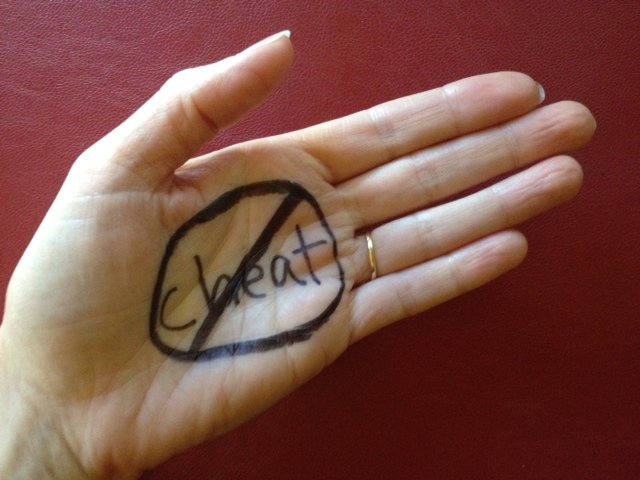We all know the delicious feeling of lying in bed after having just woken and allowing ourselves to drift back into dreamland.
We woozily tell ourselves it will be just for a minute, that we don’t really need those extra few minutes in our morning and that a bit more rest will be good for us.
The problem is, we are lying to ourselves.
Not only are we losing our head start on the day, those extra few minutes of snooze time aren’t actually doing us any good. They don’t give us any real rest, and in fact can actually mess with our brain chemistry for the rest of the day. Ugh.
As we sleep, we cycle through various stages throughout the night. When our sleep is interrupted, or fragmented, like when we fall back asleep after hitting the snooze button, we don’t get a full cycle of healthy sleep.
Maybe that doesn’t sound so bad, but studies about sleep fragmentation suggest that when our sleep is interrupted in cycles like hitting the snooze button can produce, we actually become impaired in our waking hours. Impaired—a word we often reserve for describing what happens when you drink or take drugs. Like that.
Similar to lack of sleep, fragmented sleep, can also make us, well, dumb. We are less alert, and have trouble concentrating, remembering, understanding and reacting. Plus, an inferior quality of sleep makes us just plain grumpy.
Getting enough sleep is a hot topic these days.
While there’s a lot of information out there, most experts seem to agree that seven to nine hours is the optimal amount that we all need, and that not enough of us are getting that.
Snoozing, no matter how many times you hit the button, is not providing the additional rest that you need. It’s sending conflicting messages and chemicals to your brain that mix up what you need to prepare to wake up and what you need to return to sleep. That combination can leave you feeling subpar and actually make it more challenging to get out of bed, not easier.
However bad that might be though, perhaps the most irksome thing about the snooze button is the ease with which you can take your best intentions to start your day and let yourself off the hook.
There are times when we get ourselves out of bed right on time—maybe we have a plane to catch or a job interview or important meeting. In those cases, we turn the alarm off and get ourselves going.
When was the last time you intentionally showed up for a meeting or appointment nine, 18 or even 36 minutes late? That’s exactly how we are showing up for our day when we hit the snooze.
By snoozing, we making a choice to tell ourselves that whatever our morning or day has in store for us, it’s okay to show up late for it. We are holding ourselves to a flagrant double standard that says that when we show up for other people we need to be on time, but when it comes to ourselves, it’s okay to cheat.
There are two issues at play here: if you are waking up in the morning with a compelling desire to hit that button, it’s likely a good indicator that you just aren’t getting enough sleep to begin with. Equally as important, if you’re allowing yourself to hit the snooze, you are choosing to start your day behind the eight ball.
What you can do:
Get enough sleep. It’s probably wishful thinking to imagine getting into a sleep cycle that allows us to rise with the sun—and without an alarm clock. But trying to reset our bed time and rising times so that there are enough hours in between and we wake rested is at least something we can shoot for. You can try going to bed just a few minutes earlier each night until you’re drifting off at an optimal time, at least more regularly.
Resist the urge. Put a gentle toned alarm clock across the room so you have to get up to turn it off. Then, once you turn it off, get up, get going. Make your morning routine your own. Weave in enough time for a few pages of the newspaper, or a few moments of meditation or writing or whatever it is that is going to help you to seize the day.
Build in the snooze. If hitting the snooze has become such an important habit to you, try setting your alarm for nine, 18 or 36 minutes earlier than usual and then doing your usual snooze. It may not be optimal, but it will move you in the right direction.
Take a Nap. For some of us, making time or space for a nap isn’t going to happen, but if possible, fitting one in is a lot less disruptive to your well-being than a morning nine or 18 minute snooze. Sleep experts suggest that the optimal length of time for a nap is about 20 minutes. More than that can take you over the edge into a deeper slumber that’s harder to wake from and less than that is almost as if it hadn’t happened.
If you’re finding these things challenging, just remember, not getting enough sleep has an undeniably deleterious effect on the way we live our days.
And the snooze button somehow tells us that it’s okay to just not show up optimally. Then ask yourself—is this how I really want to show up for life: impaired with none of the pleasure of a more spacious start to the day, day after day?
Whoever came up with the old adage You Snooze, You Lose was onto something. Hitting the snooze robs us of good sleep, optimal wakefulness and a take charge approach to our days. Try reminding yourself that the next time you are tempted to hit that button.
Love elephant and want to go steady?
Sign up for our (curated) daily and weekly newsletters!
Editor: Catherine Monkman
Photos: Courtesy of Author











Read 4 comments and reply